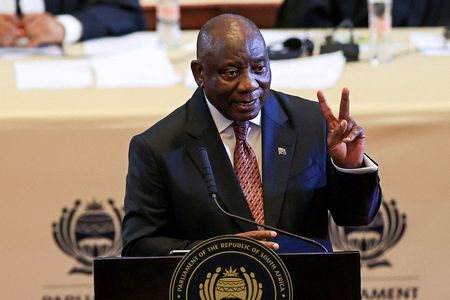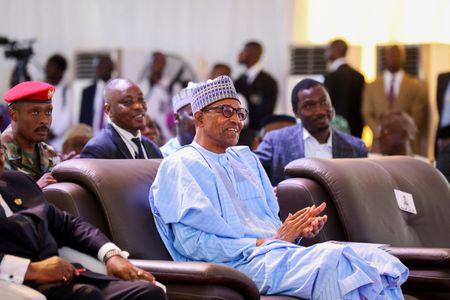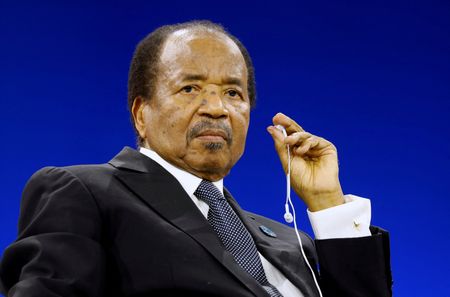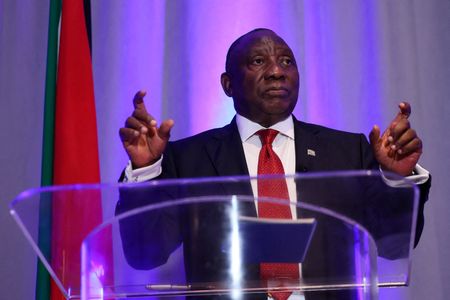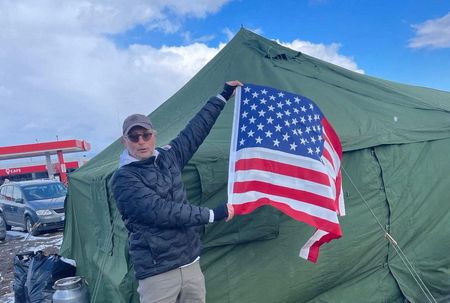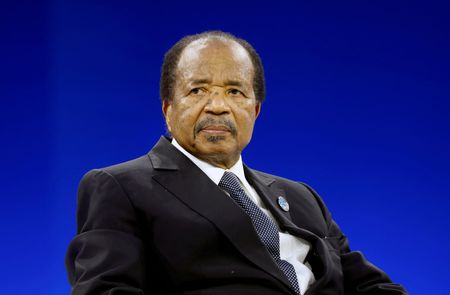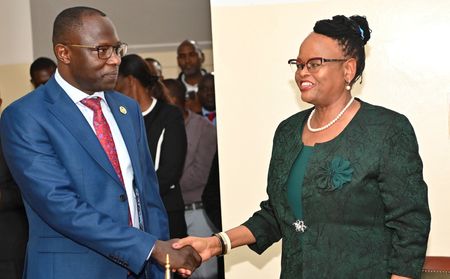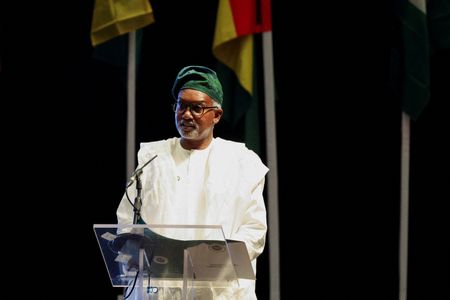By Tim Cocks, Nellie Peyton and Tannur Anders
JOHANNESBURG (Reuters) – Foreign ministers from the G20 top economies met in South Africa on Thursday, amid tensions between members over the Ukraine war, trade disputes and with the top U.S. diplomat staying away owing to a feud with the hosts.
The G20 countries, which represent some 85% of global GDP and three quarters of trade, often struggle to see eye to eye, but geopolitical rifts since Russia’s 2022 Ukraine invasion have rendered it more fractious than ever.
The discord has increased since President Donald Trump took office a month ago and implemented rapid changes in Washington’s trade and foreign policies.
“Geopolitical tensions and rising intolerance, conflict and war … threaten an already fragile global coexistence,” South African President Cyril Ramaphosa, who holds the rotating presidency of the group, said in an opening speech of the gathering, which ends on Friday.
South Africa sees the first G20 meeting on the continent as an opportunity to get rich nations to heed poorer countries’ concerns – worsening inequality, inadequate action by wealthy countries on climate change, and a financial system that favours investment banks over poor sovereign debtors.
“Those most responsible for climate change, you have a duty and a responsibility to support those least responsible,” Ramaphosa said, while also calling for “debt sustainability for low-income countries.”
The United States did not attend: Secretary of State Marco Rubio earlier this month rejected as “very bad” the previously agreed agenda of “diversity, equity and inclusion”.
Then Trump cut U.S. aid to South Africa in an ideological dispute with the latter’s efforts to redress historic racial injustices in land ownership – and over its genocide case against U.S. ally Israel at the International Court of Justice.
The gathering takes place as Trump has upended the U.S. policy of solidarity with Ukraine as he seeks to broker peace in its war with Russia. He has blamed President Volodymyr Zelenskiy for the conflict, and sidelined NATO allies in ending a campaign to isolate Russia.
“As the G20 we must continue to advocate for diplomatic solutions to conflicts,” Ramaphosa, who has resisted pressure to isolate Russia over the invasion.
The U.S. absence is an opportunity for China, which has the world’s second biggest economy, to expand its influence. Such efforts by Beijing are normally focused on the Global South but China has quickly sought to capitalise on the cracks in the transatlantic alliance.
Its foreign ministry said on Monday that “healthy and stable” China-EU relations are needed now more than ever.
(This story has been refiled to move a reference to the meeting’s close on Friday to paragraph 4)
(Reporting by Tim Cocks, Nellie Peyton and Tannur Anders in Johannesburg; Editing by Frances Kerry and Hugh Lawson)

